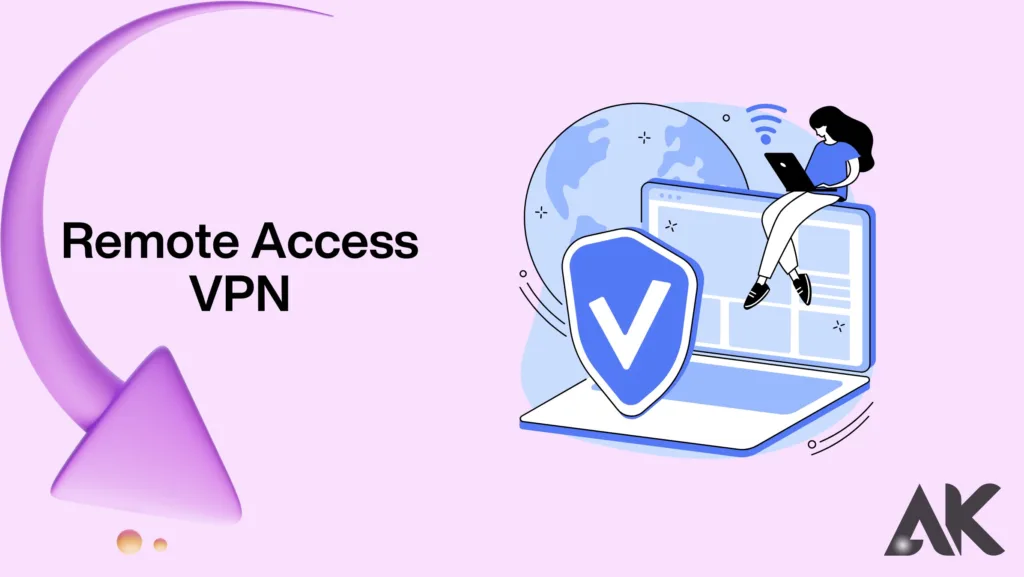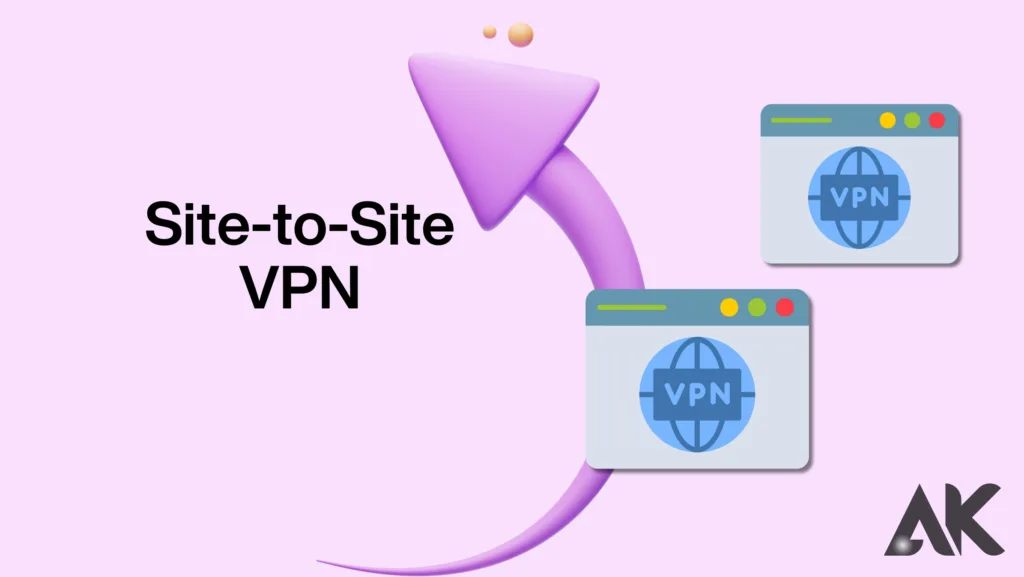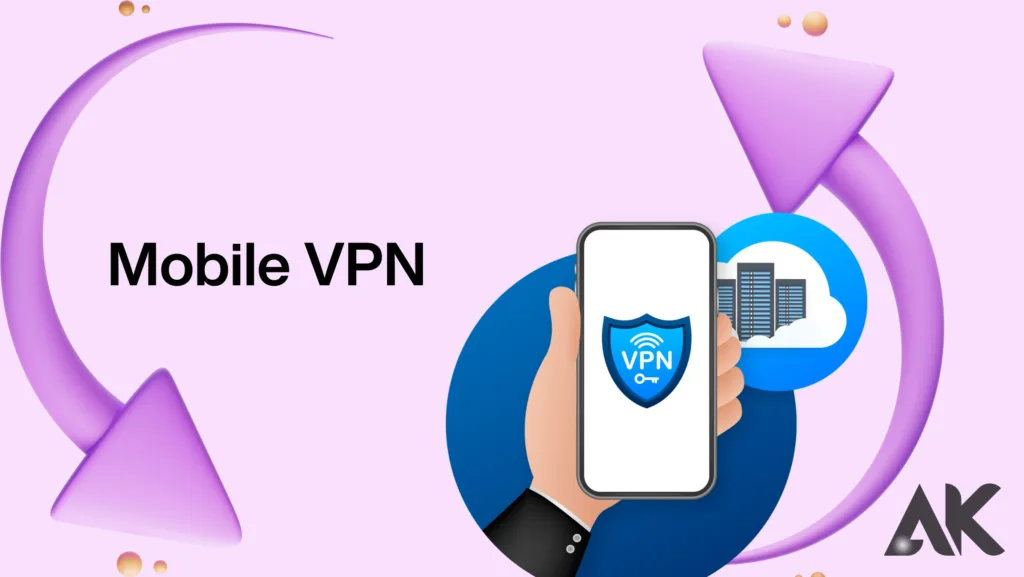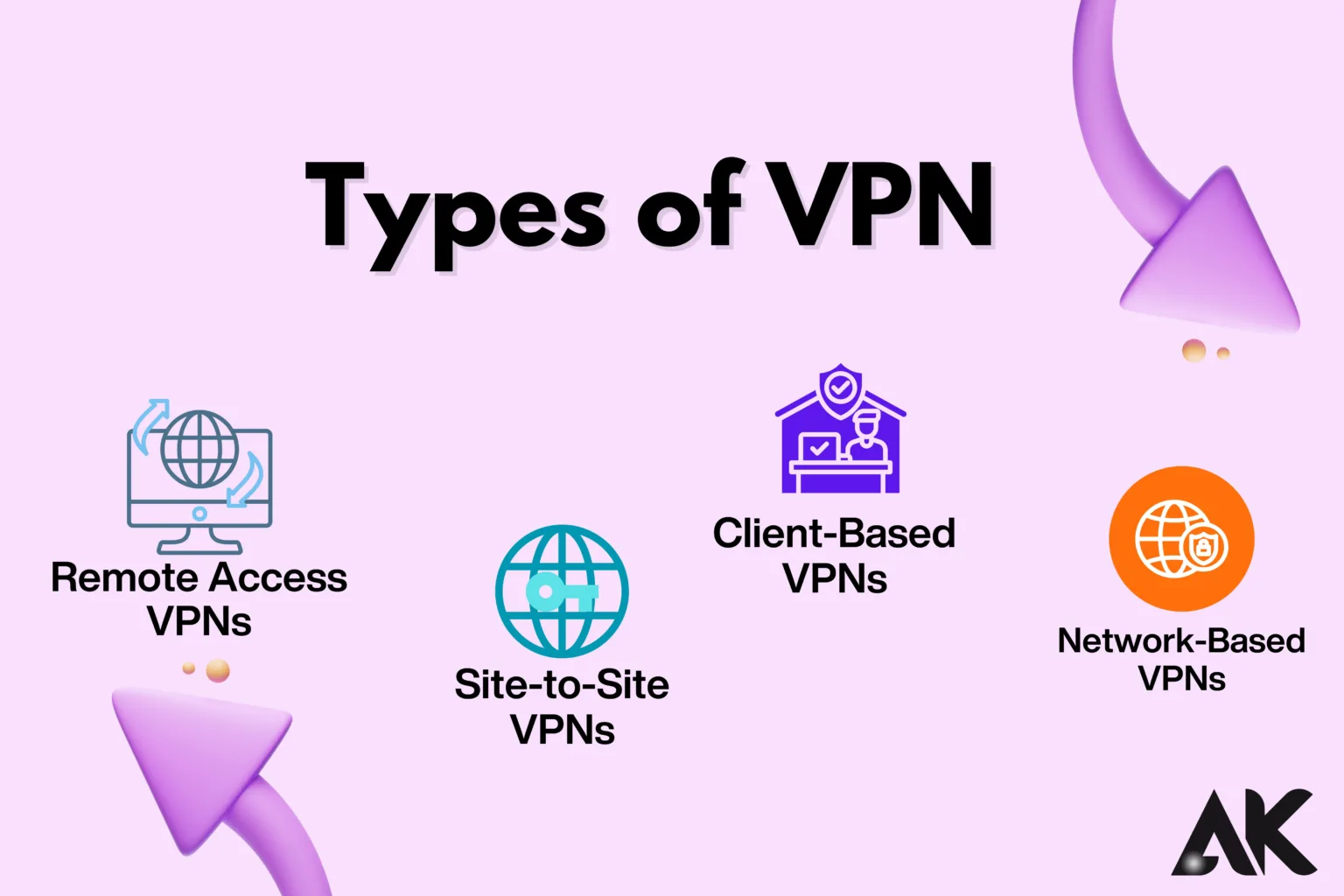When it comes to protecting your online privacy and enhancing security, understanding the types of VPN is crucial. VPNs, or Virtual Private Networks, are not a one-size-fits-all solution. Different types cater to various needs, whether you’re a casual browser, a remote worker, or a streaming enthusiast.
For instance, remote-access VPNs are perfect for securely connecting to work networks from anywhere, while site-to-site VPNs are ideal for businesses linking multiple office locations. There are also mobile VPNs for on-the-go security and personal VPNs designed to safeguard your internet activity. Each type offers unique benefits to suit diverse online activities. Let’s explore these types of VPN and help you pick the one that fits your digital lifestyle perfectly.
Remote Access VPN: Your Personal Online Shield

Remote Access VPNs are among the most common types of VPN used today, offering a secure way for individuals to connect to private networks over the internet. This type of VPN is particularly popular among remote workers and small business teams, as it ensures sensitive data remains encrypted and protected from potential cyber threats.
By masking the user’s IP address and creating a secure tunnel for communication, it allows safe access to restricted resources or locations. Remote Access VPNs provide an effective shield against cyberattacks, making them essential for maintaining privacy in a world increasingly reliant on online connectivity. Among the various types of VPN, this one stands out for its ease of use and versatility for personal security.
Site-to-Site VPN: The Corporate Connector

Site-to-Site VPNs are one of the essential types of VPN designed to connect entire networks, making them ideal for businesses with multiple office locations. These VPNs create a secure tunnel between different sites, allowing employees from various branches to access shared resources seamlessly.
By enabling secure communication across distributed offices, Site-to-Site VPNs improve operational efficiency and data protection. This type of VPN is perfect for organizations that require a cohesive and secure infrastructure for their global or regional operations. The ability to link networks directly ensures reliable and continuous connectivity, making them a cornerstone for corporate environments.
Key Features:
- Facilitates secure communication between office networks.
- Eliminates the need for individual VPN accounts.
- Enhances productivity and collaboration across distributed teams.
Mobile VPN: Security on the Go

Mobile VPNs are one of the most adaptable types of VPN, designed to maintain secure connections for users on the move. They are ideal for individuals using smartphones, tablets, or laptops who frequently switch between networks, such as moving from Wi-Fi to mobile data.
Unlike traditional VPNs, Mobile VPNs ensure uninterrupted protection, even during network transitions or signal drops. This makes them particularly useful for remote workers, field employees, or anyone requiring reliable security while traveling. By adapting to different network environments, Mobile VPNs keep sensitive data safe and communication private, regardless of location or device.
Key Features:
- Provides seamless transitions between networks.
- Ensures stable connections even with low bandwidth.
- Optimized for mobile devices like smartphones and tablets.
Cloud VPN: Secure Access to Cloud Services
Cloud VPNs are among the most vital types of VPN for businesses relying on cloud computing. They ensure secure and reliable access to cloud-based resources, enabling organizations to connect remote teams, branch offices, and individual users to critical applications hosted in the cloud.
Cloud VPNs create encrypted tunnels that safeguard data as it moves between devices and cloud servers, reducing the risk of unauthorized access or breaches. This type of VPN is particularly effective for modern businesses transitioning to or already operating within a cloud-first strategy. It offers scalability, flexibility, and enhanced security for sensitive operations and remote workflows.
Key Features:
- Provides secure access to cloud applications and servers.
- Scales to meet growing business demands.
- Protects sensitive data during cloud interactions.
Intranet VPN: Simplifying Internal Access
Intranet VPNs are a crucial option among the different types of VPN, designed to provide secure access to an organization’s internal network for employees working remotely. These VPNs enable teams to connect to company resources, such as databases, email servers, and internal tools, without compromising security.
By encrypting communication and restricting access to authorized users only, intranet VPNs ensure that sensitive data remains safe from cyber threats. This type of VPN is especially beneficial for companies with distributed workforces or hybrid work models, as it supports seamless collaboration while maintaining strict security protocols. It is an essential solution for safeguarding internal operations and promoting productivity across remote and on-site teams.
Key Features:
- Grants remote employees secure access to internal systems.
- Encrypts data to prevent unauthorized access.
- Ensures seamless communication and collaboration.
Extranet VPN: Collaboration Beyond Boundaries
Extranet VPNs are a significant addition to the different types of VPN, offering secure connections between an organization and its external stakeholders, such as partners, suppliers, or clients. This VPN type enables smooth and protected data sharing while maintaining strict control over access permissions. Extranet VPNs are particularly beneficial for businesses that need to collaborate with external entities while safeguarding sensitive information.
They create a dedicated private network for communication, fostering trust and improving efficiency in partnerships. By allowing controlled access to specific resources, Extranet VPNs strike a balance between connectivity and security, making them a popular choice for businesses engaged in external collaborations.
Key Features:
- Enables secure collaboration with external stakeholders.
- Restricts access to authorized resources only.
- Improves efficiency and trust in business partnerships.
Peer-to-Peer VPN: The Decentralized Option
Peer-to-Peer (P2P) VPNs are one of the most unique types of VPN, offering a decentralized way for users to connect directly to each other’s devices without relying on a central server. This type of VPN is ideal for individuals who want to share files, stream media, or browse the internet with enhanced privacy and anonymity.
P2P VPNs allow data to be transmitted directly between peers, bypassing the usual intermediary servers, which can improve connection speeds and reduce the risk of data interception. With its focus on privacy and security, a P2P VPN is often favored by those who value anonymity, such as for torrenting or accessing geo-restricted content.
Key Features:
- Direct device-to-device communication without a central server.
- Enhances privacy by masking IP addresses.
- Ideal for activities like torrenting or streaming.
VPN for IoT: Protecting Smart Devices
VPNs for IoT are becoming essential in the growing landscape of connected devices, which is why they are an important type of VPN to consider. As more homes and businesses adopt smart devices like cameras, thermostats, and smart speakers, securing these devices from potential cyber threats is critical.
VPNs for IoT provide an encrypted connection between IoT devices and the network, ensuring that sensitive data transmitted between them remains protected. This type of VPN is especially crucial as IoT devices are often targeted by hackers due to their weaker security protocols. By using a VPN for IoT, users can safeguard their devices and prevent unauthorized access, keeping their smart environments secure.
Key Features:
- Encrypts communication between IoT devices and networks.
- Protects smart devices from unauthorized access.
- Enhances security for homes and businesses using IoT devices.
Split Tunneling VPN: Customized Connectivity
Split tunneling VPNs are an intriguing option among the various types of VPN, offering customized connectivity by allowing users to choose which internet traffic goes through the VPN and which doesn’t. This feature is especially useful for those who need to access secure resources, like company networks, while also using local or unprotected internet services for other activities.
For example, users can route work-related traffic through the VPN for extra security, while streaming videos or browsing social media without the VPN, improving speed and reducing network load. Split tunneling allows for greater flexibility and efficiency, making it an excellent choice for those balancing both secure and non-secure online activities.
Key Features:
- Allows customized routing of traffic through the VPN.
- Improves internet speed by reducing VPN load.
- Ideal for users balancing secure work and casual browsing.
Conclusion: Navigating the World of VPNs
Understanding the different types of VPN is crucial for selecting the best option to meet your security and connectivity needs. The types of VPN vary from remote access VPNs, ideal for individuals working from home, to site-to-site VPNs that connect multiple office networks securely.
By using a VPN, users can encrypt their data, protect their privacy, and access restricted content. Each type of VPN serves a specific purpose, making it essential to choose the right one for your personal or business requirements. Whether you need secure remote access or secure communication between offices, the right VPN can make all the difference.
FAQS
Q1. What are the main types of VPN?
A. The main types of VPN include remote access VPN, site-to-site VPN, mobile VPN, and cloud VPN, each designed for different connectivity needs.
Q2. How does a site-to-site VPN work?
A. A site-to-site VPN securely connects two or more office networks, allowing users at different locations to access shared resources over the internet.
Q3. What is the purpose of a mobile VPN?
A. A mobile VPN ensures secure connections for users on the move, maintaining data privacy even when switching between different networks or locations.

